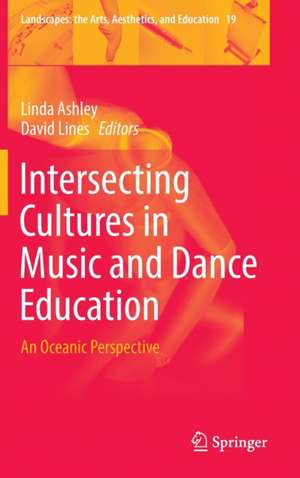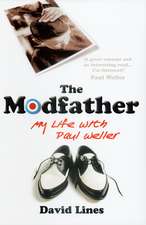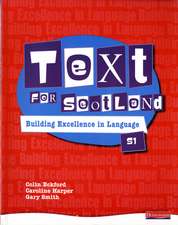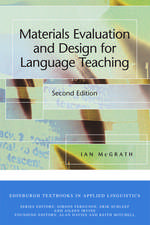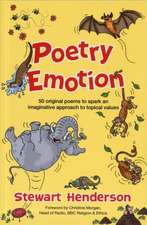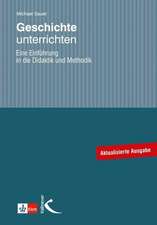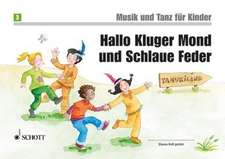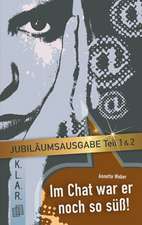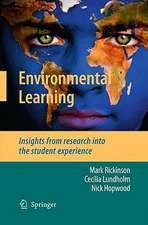Intersecting Cultures in Music and Dance Education: An Oceanic Perspective: Landscapes: the Arts, Aesthetics, and Education, cartea 19
Editat de Linda Ashley, David Linesen Limba Engleză Hardback – 6 iun 2016
| Toate formatele și edițiile | Preț | Express |
|---|---|---|
| Paperback (1) | 628.41 lei 6-8 săpt. | |
| Springer International Publishing – 30 mai 2018 | 628.41 lei 6-8 săpt. | |
| Hardback (1) | 634.64 lei 6-8 săpt. | |
| Springer International Publishing – 6 iun 2016 | 634.64 lei 6-8 săpt. |
Din seria Landscapes: the Arts, Aesthetics, and Education
- 20%
 Preț: 690.43 lei
Preț: 690.43 lei - 18%
 Preț: 874.03 lei
Preț: 874.03 lei - 15%
 Preț: 626.80 lei
Preț: 626.80 lei - 18%
 Preț: 929.55 lei
Preț: 929.55 lei - 20%
 Preț: 565.08 lei
Preț: 565.08 lei - 15%
 Preț: 629.83 lei
Preț: 629.83 lei - 15%
 Preț: 631.92 lei
Preț: 631.92 lei - 24%
 Preț: 1158.48 lei
Preț: 1158.48 lei - 15%
 Preț: 632.24 lei
Preț: 632.24 lei - 18%
 Preț: 772.15 lei
Preț: 772.15 lei - 15%
 Preț: 690.24 lei
Preț: 690.24 lei - 15%
 Preț: 633.23 lei
Preț: 633.23 lei - 18%
 Preț: 978.41 lei
Preț: 978.41 lei - 18%
 Preț: 719.10 lei
Preț: 719.10 lei - 18%
 Preț: 769.04 lei
Preț: 769.04 lei - 18%
 Preț: 873.41 lei
Preț: 873.41 lei - 15%
 Preț: 687.20 lei
Preț: 687.20 lei - 18%
 Preț: 770.75 lei
Preț: 770.75 lei - 18%
 Preț: 867.56 lei
Preț: 867.56 lei -
 Preț: 416.44 lei
Preț: 416.44 lei - 18%
 Preț: 880.25 lei
Preț: 880.25 lei - 15%
 Preț: 628.74 lei
Preț: 628.74 lei -
 Preț: 343.84 lei
Preț: 343.84 lei - 18%
 Preț: 922.60 lei
Preț: 922.60 lei - 18%
 Preț: 763.62 lei
Preț: 763.62 lei - 18%
 Preț: 770.27 lei
Preț: 770.27 lei - 18%
 Preț: 870.31 lei
Preț: 870.31 lei - 18%
 Preț: 765.32 lei
Preț: 765.32 lei - 18%
 Preț: 874.50 lei
Preț: 874.50 lei
Preț: 634.64 lei
Preț vechi: 746.63 lei
-15% Nou
Puncte Express: 952
Preț estimativ în valută:
121.48€ • 127.52$ • 100.35£
121.48€ • 127.52$ • 100.35£
Carte tipărită la comandă
Livrare economică 30 ianuarie-13 februarie 25
Preluare comenzi: 021 569.72.76
Specificații
ISBN-13: 9783319289878
ISBN-10: 331928987X
Pagini: 250
Ilustrații: VIII, 308 p. 10 illus.
Dimensiuni: 155 x 235 x 19 mm
Greutate: 0.62 kg
Ediția:1st ed. 2016
Editura: Springer International Publishing
Colecția Springer
Seria Landscapes: the Arts, Aesthetics, and Education
Locul publicării:Cham, Switzerland
ISBN-10: 331928987X
Pagini: 250
Ilustrații: VIII, 308 p. 10 illus.
Dimensiuni: 155 x 235 x 19 mm
Greutate: 0.62 kg
Ediția:1st ed. 2016
Editura: Springer International Publishing
Colecția Springer
Seria Landscapes: the Arts, Aesthetics, and Education
Locul publicării:Cham, Switzerland
Public țintă
ResearchCuprins
Introduction by Linda Ashley and David Lines.- Part I Music and Dance in Education Through Oceanic Traditions.- Mau Kōrari – Traditional Māori Martial Art Training Incorporating American and European Dance Forms by Tanemahuta Gray with Jenny Stevenson.- Learning Music and Dance in Micronesia by Brian Diettrich.- Sāsā: More Than Just a Dance by Robyn Trinick and Luama Sauni.- Pride and Honour: Indigenous Dance in New South Wales Schools by Katie Wilson.- Part II Culturally Responsive Pedagogies.- Making Connections: Culturally Responsive Pedagogy and Dance in the Classroom by Liz Melchior.- Legacy and Adaptation: Orff Schulwerk in the New Zealand Setting by Linda Locke.- Forging Genuine Partnerships in the Performance Studio: Reviving the Master-Apprentice Model for Post-Colonial Times by Te Oti Rakena.- Changing Pedagogical Approaches in ‘Ori Tahiti: “Traditional” Dance for a Non-Traditional Generation by Jane Freeman-Moulin.- Dancing into the Third Space: The Role of Dance and Drama in Discovering Who We Are by Janinka Greenwood.- Untangling Intersections of Diverse Indigenous Heritages in Dance Education: Echoes, Whispers and Erosion in the Creases by Linda Ashley.- Part III Sharing and Constructing Identities, Meanings and Values.- Songs Stories Tell and Intersecting Cultures by Harold Anderson.- Being Heard: Indigenous Community Narratives by Stephen Matthews.- Cross-Cultural Education in Dance and Song in Aotearoa and Sāmoa by Olivia Taouma.- Musicultural Identity and Intersecting Geographic Contexts in Oceania by Trevor Thwaites.- Tama Watēa: Integrating Māori perspectives into Dance Education by Ojeya Cruz-Banks.- The Ocean Swim: Rethinking Community in an Early Childhood Education Performing Arts Research Initiative by David Lines.
Textul de pe ultima copertă
This volume looks forward and re-examines present day education and pedagogical practices in music and dance in the diverse cultural environments found in Oceania. The book also identifies a key issue of how teachers face the prospect of taking a reflexive view of their own cultural legacy in music and dance education as they work from and alongside different cultural worldviews. This key issue, amongst other debates that arise, positions Intersecting Cultures as an innovative text that fills a gap in the current market with highly appropriate and fresh ideas from primary sources. The book offers commentaries that underpin and inform current pedagogy and bigger picture policy for the performing arts in education in Oceania, and in parallel ways in other countries.
Caracteristici
Opens up lesser researched practices in dance and music education from Oceania Provides a thorough examination of music and dance issues through critical examination of issues such as colonisation, creative practices, hybrid pedagogies, marginalised voices etc. Gives music and dance educators insight into cultural ideas that affect music, dance and music/dance
